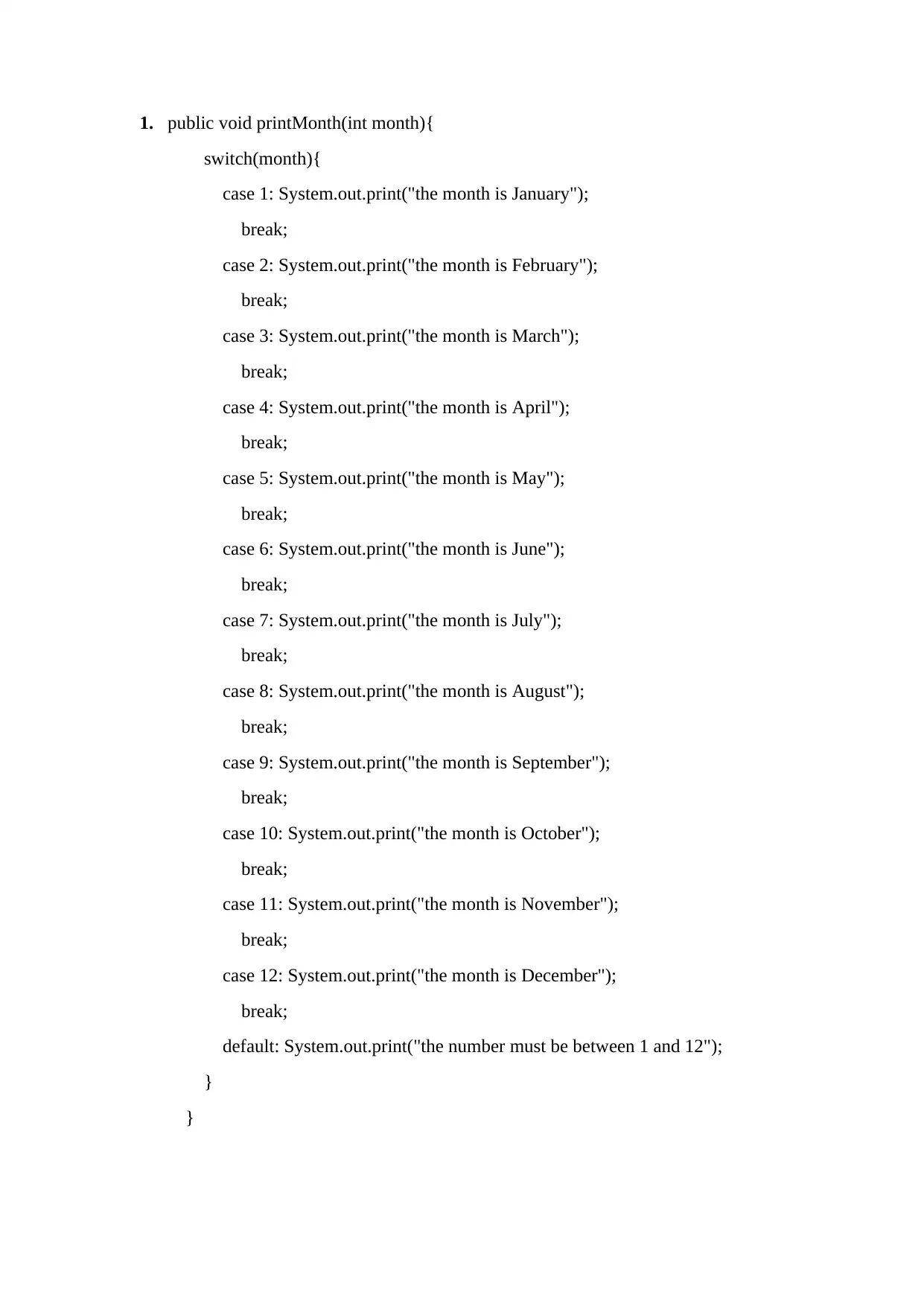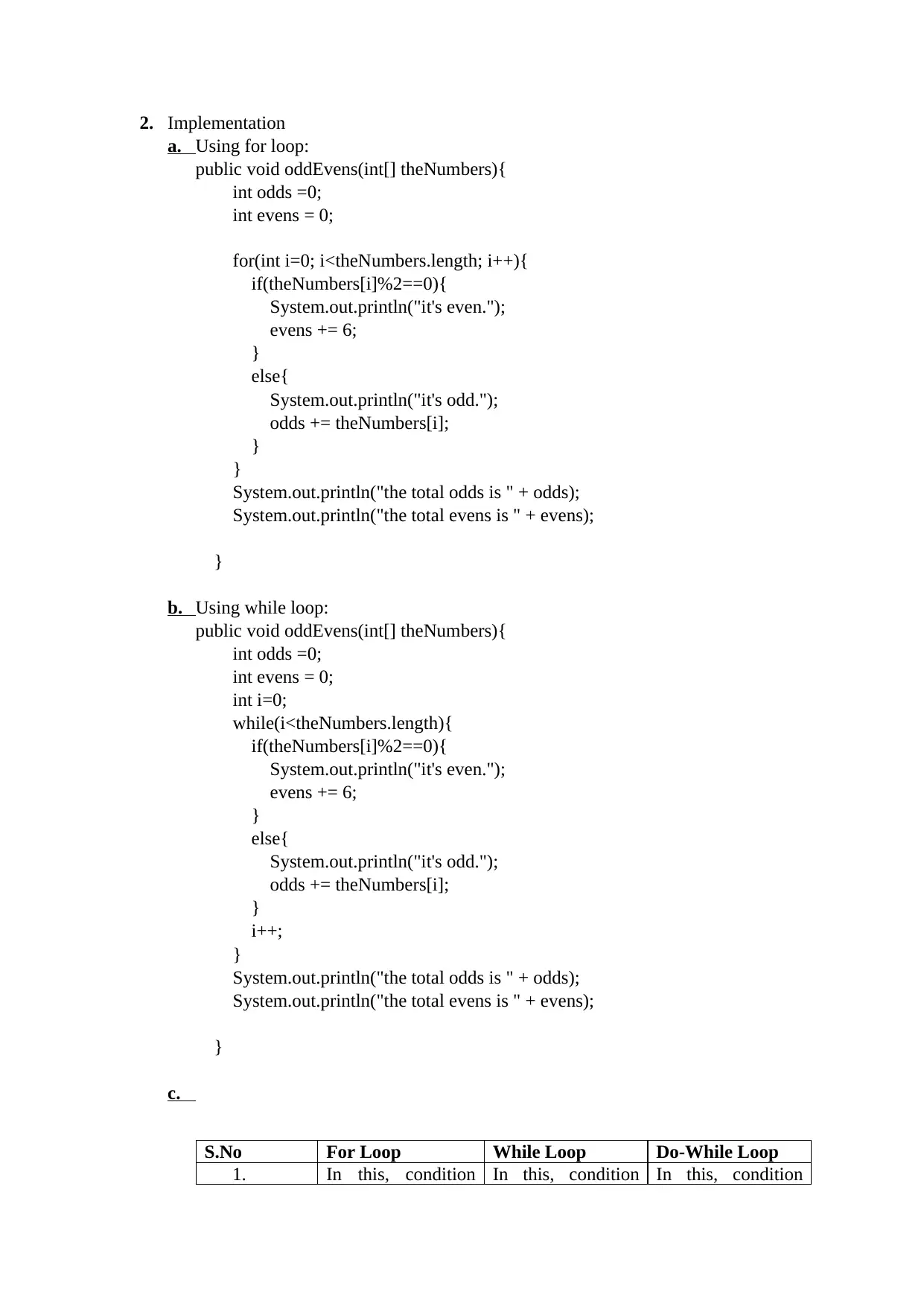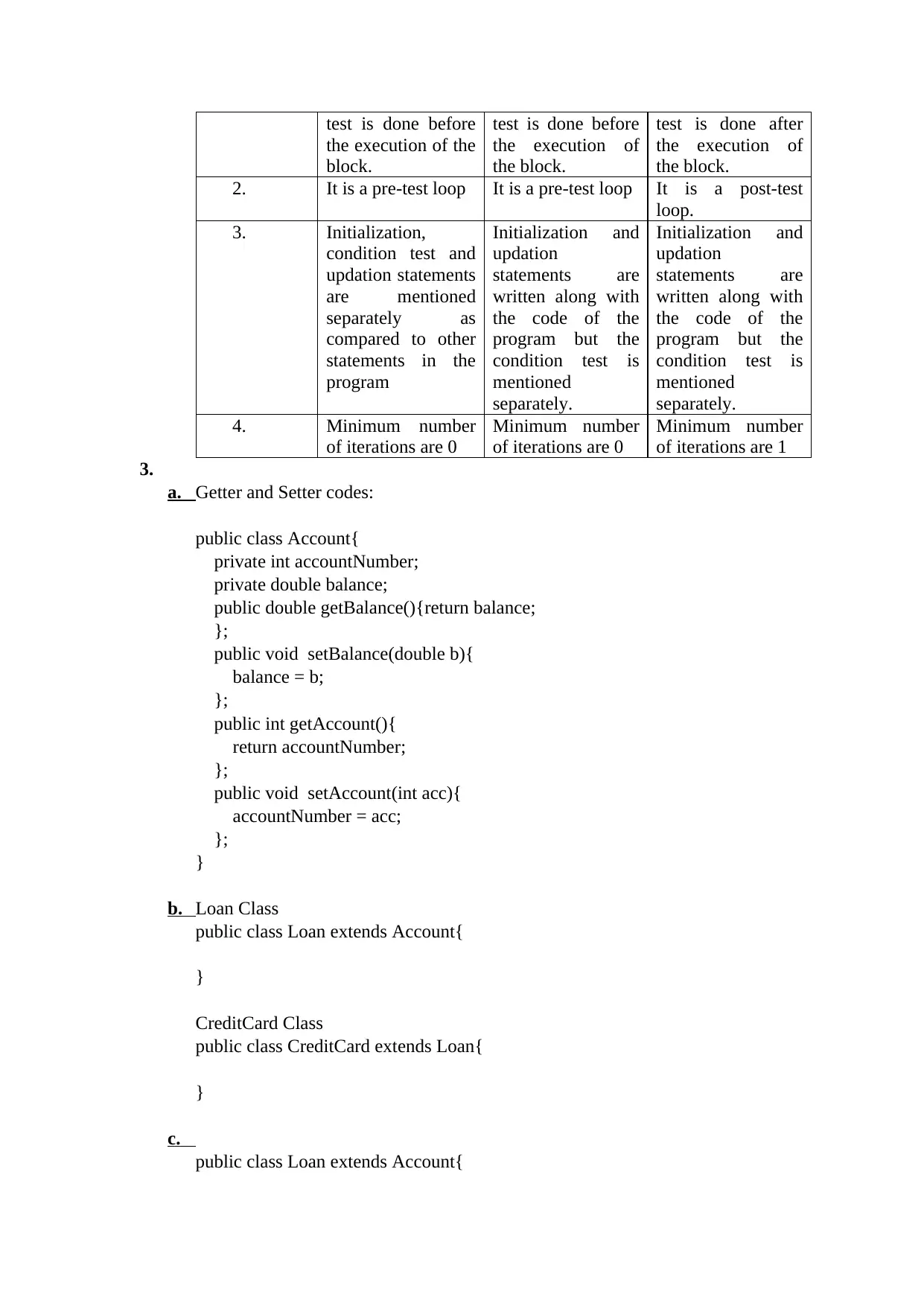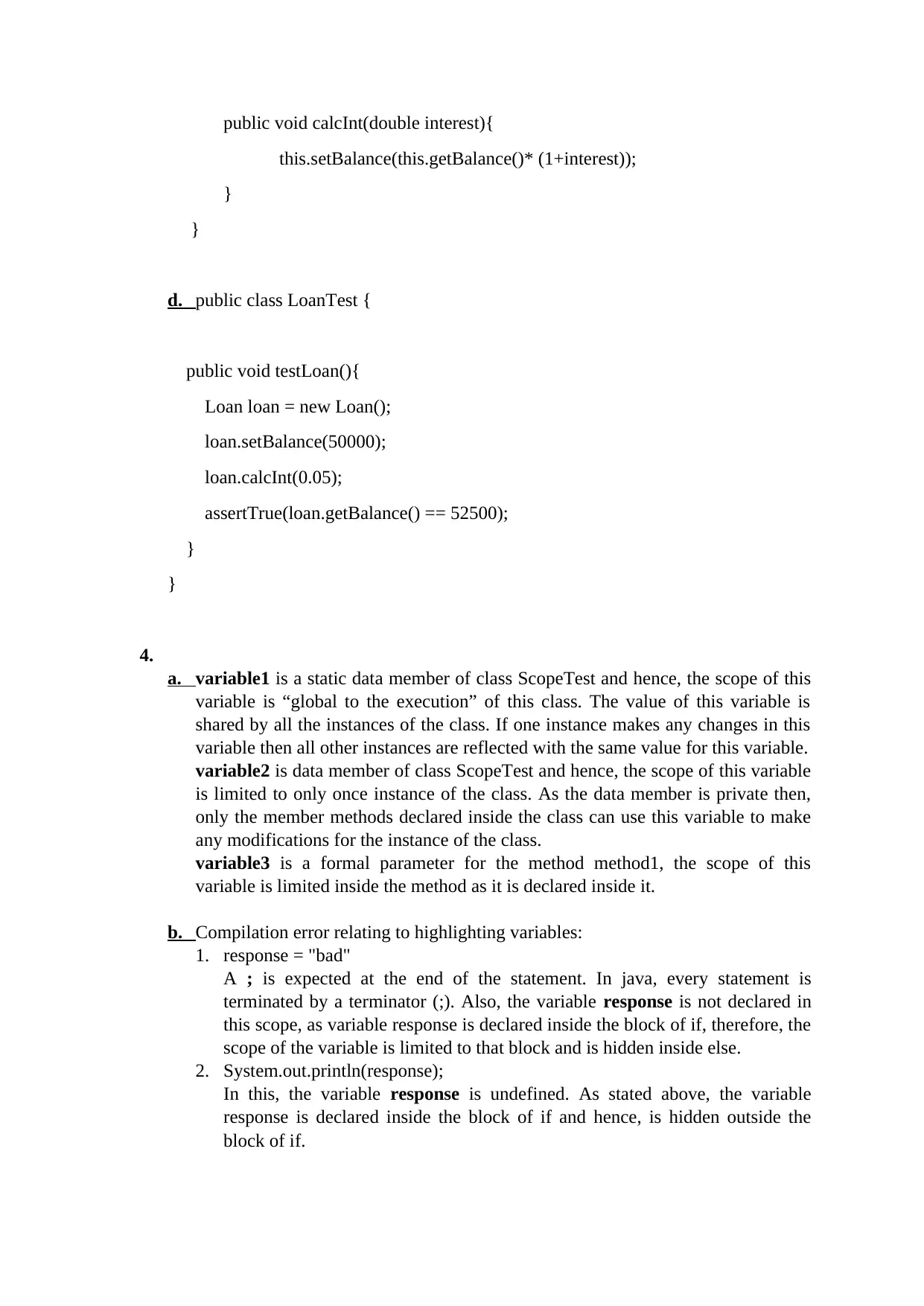Java Assignment: Loops, Classes, Methods, and Variables
VerifiedAdded on 2020/05/11
|4
|985
|401
Homework Assignment
AI Summary
This Java assignment presents several code snippets demonstrating fundamental programming concepts. It includes a `printMonth` method using a `switch` statement, and implementations of `oddEvens` using both `for` and `while` loops. The document also contrasts the characteristics of `for`, `while`, and `do-while` loops. Furthermore, it contains examples of getter and setter methods within an `Account` class, along with inheritance examples involving `Loan` and `CreditCard` classes. A `LoanTest` class with a unit test is provided. The assignment also explains variable scope, differentiating between static, instance, and local variables, and addresses compilation errors related to variable scope and declaration. The provided code showcases practical Java programming techniques and best practices.
1 out of 4









![[object Object]](/_next/static/media/star-bottom.7253800d.svg)